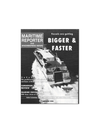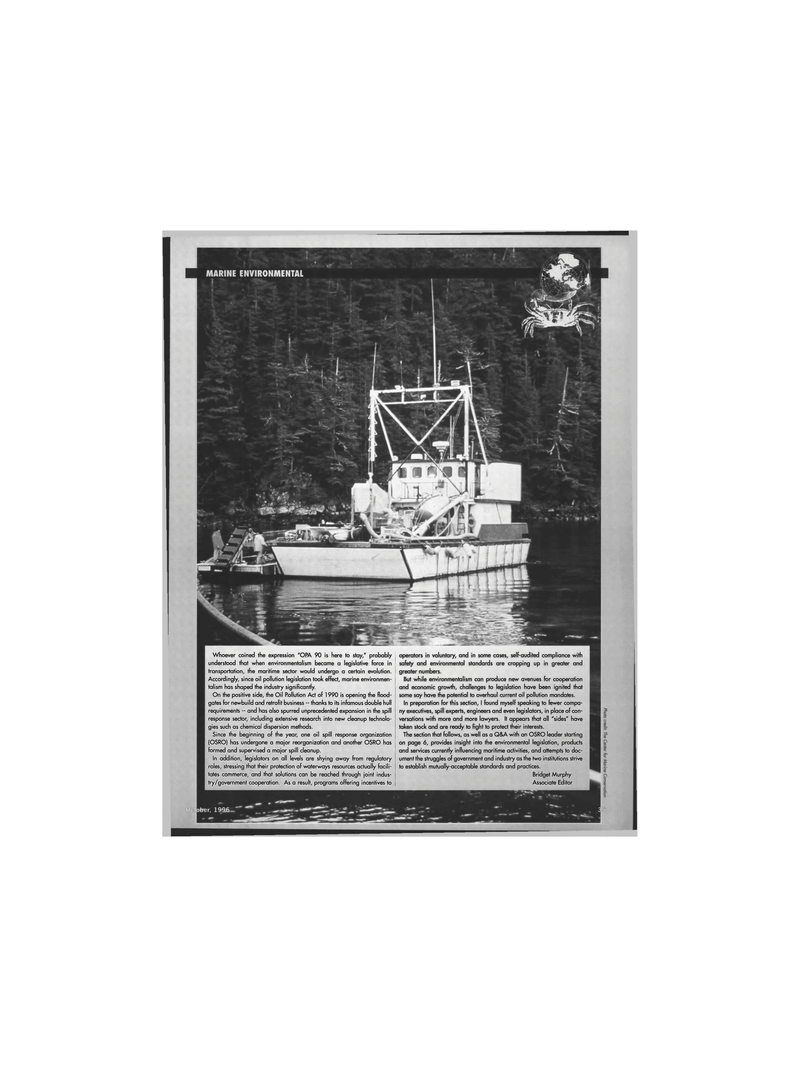
Page 3rd Cover: of Maritime Reporter Magazine (October 1996)
Read this page in Pdf, Flash or Html5 edition of October 1996 Maritime Reporter Magazine
Whoever coined the expression "OPA 90 is here to stay," probably understood that when environmentalism became a legislative force in transportation, the maritime sector would undergo a certain evolution.
Accordingly, since oil pollution legislation took effect, marine environmen- talism has shaped the industry significantly.
On the positive side, the Oil Pollution Act of 1990 is opening the flood- gates for newbuild and retrofit business - thanks to its infamous double hull requirements -- and has also spurred unprecedented expansion in the spill response sector, including extensive research into new cleanup technolo- gies such as chemical dispersion methods.
Since the beginning of the year, one oil spill response organization (OSRO) has undergone a major reorganization and another OSRO has formed and supervised a major spill cleanup.
In addition, legislators on all levels are shying away from regulatory roles, stressing that their protection of waterways resources actually facili- tates commerce, and that solutions can be reached through joint indus- try/government cooperation. As a result, programs offering incentives to operators in voluntary, and in some cases, self-audited compliance with safety and environmental standards are cropping up in greater and greater numbers.
But while environmentalism can produce new avenues for cooperation and economic growth, challenges to legislation have been ignited that some say have the potential to overhaul current oil pollution mandates.
In preparation for this section, I found myself speaking to fewer compa- ny executives, spill experts, engineers and even legislators, in place of con- versations with more and more lawyers. It appears that all "sides" have taken stock and are ready to fight to protect their interests.
The section that follows, as well as a Q&A with an OSRO leader starting on page 6, provides insight into the environmental legislation, products and services currently influencing maritime activities, and attempts to doc- ument the struggles of government and industry as the two institutions strive to establish mutually-acceptable standards and practices.
Bridget Murphy
Associate Editor

 32
32

 4th Cover
4th Cover
